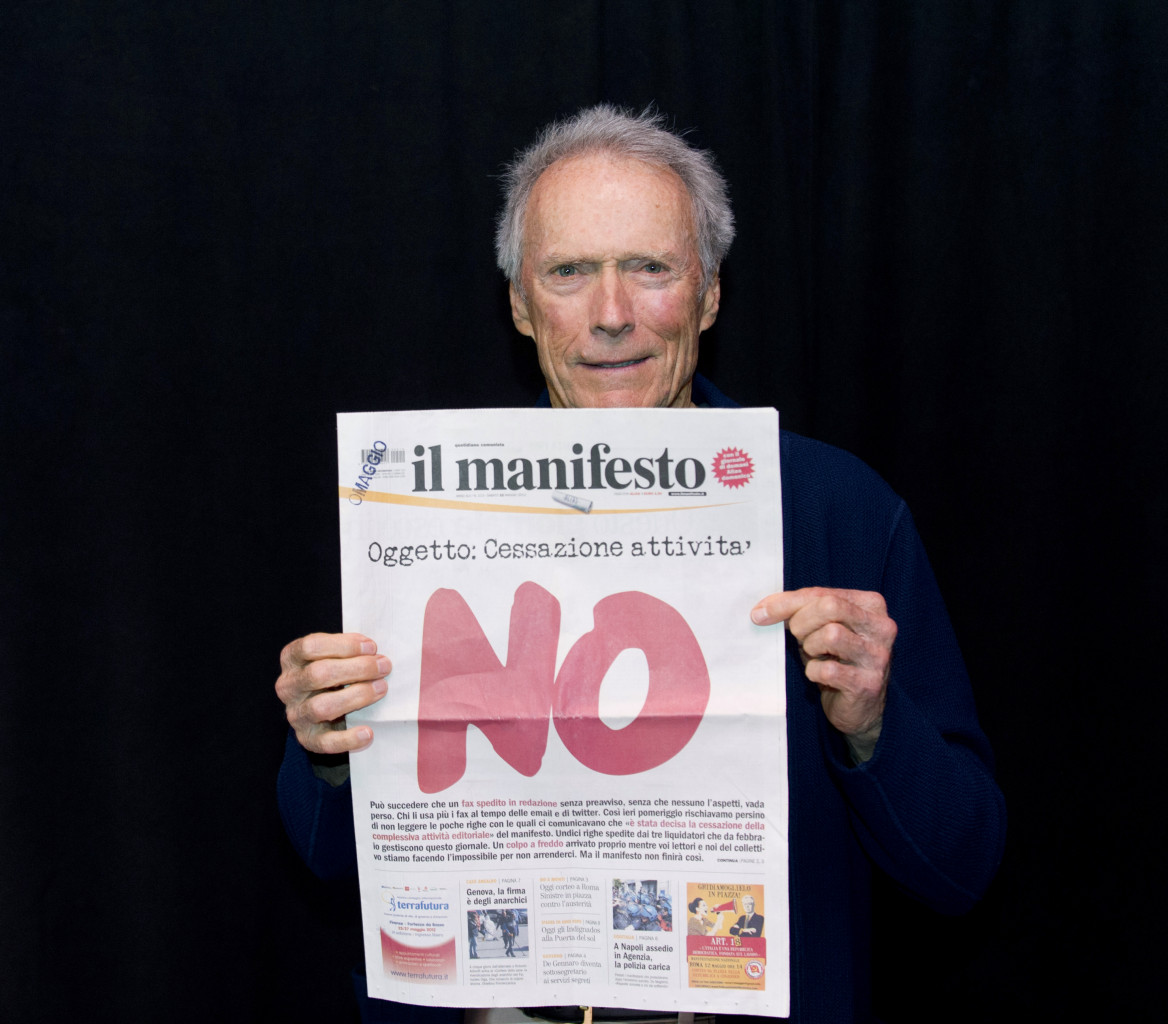Commentary
While Italy discusses bailout funding, the government again wants to cut ours
It seems unbelievable that while all around us there is a windfall of public aid towards all sectors of the economy—aid which is sacrosanct, even if insufficient—they want to do exactly the opposite with regard to il manifesto.

Courtesy of Clint Eastwood – photo by Magnus Sundholm/il manifesto – all rights reserved
Our newspaper is going through the health and economic crisis without losing readers, but actually increasing circulation. It is a newspaper that can count on the small means of its collective. It is a newspaper that has held strong to solidarity among its workers, managing to refrain from using even a single working hour from the redundancy fund provided by the many COVID decrees.
It is a newspaper which, during the hardest months, has kept its website open for free. It is a newspaper which, during a full-blown pandemic, has managed to hire six new journalists and to make permanent the positions of three trainees, who have become professionals. This is an event in the panorama of Italian publishing, where everything, starting from the social security of journalists, is collapsing under the weight of unemployment and false collaborations.
It is a newspaper that has decided to do all this in order to faithfully fulfill its function as a public good. Because this is the moment in which there is the greatest need for free, high-quality information. This newspaper is right in front of you today. Next year it will be 50 years old, and once again, at this very moment, it has to fight for its life.
It seems unbelievable that while all around us there is a windfall of public aid towards all sectors of the economy—aid which is sacrosanct, even if insufficient—they want to do exactly the opposite with regard to il manifesto. By proceeding to cut the public contributions to publishing, as Vito Crimi had wanted two years ago. Almost during another geological era, with another government, and even another Five Star Movement.
However, now, just as the (insufficient) aid to the entire publishing industry is being finally decided, most of which, of course, ends up going to the major newspapers, in the case of nonprofit publishing and cooperatives, the government is deciding that it wants to take away, not give. In practice, this is creating an incentive for a state of crisis, as if we don’t have enough crisis already. A measure that favors layoffs and early retirements, of which others—not us—have made extensive and expensive use (much more expensive than any direct state contribution).
What good are words in defense of the pluralism of information, if these words are contradicted by actions? And what of the announcements of a new reform of the sector—a reform to which the manifesto cooperative is eager to contribute—if in the meantime, what is going ahead is simply the old cuts?
The undersecretary for publishing, the government representatives and the rapporteur of the budget law—where an amendment could postpone the start of the cuts for at least a year—know very well that once the landscape turns into a desert, there will be nothing left to reform.
In the new world in which we have found ourselves, the government should have had the strength to hold back the obsessions of the Five Stars, to ask itself whether the information we need can really be entrusted to the market alone, assuming that there is such a market. Instead, starting with the Five Stars, it seems to prefer dealing with Mediaset.
Dear readers, il manifesto, which has seen and overcome so much and bears the memory of everything, will be here with its head held high to celebrate its important birthday next year. You are all invited.
Originally published at https://ilmanifesto.it/quel-taglio-fuori-dal-tempo/ on 2020-12-16
